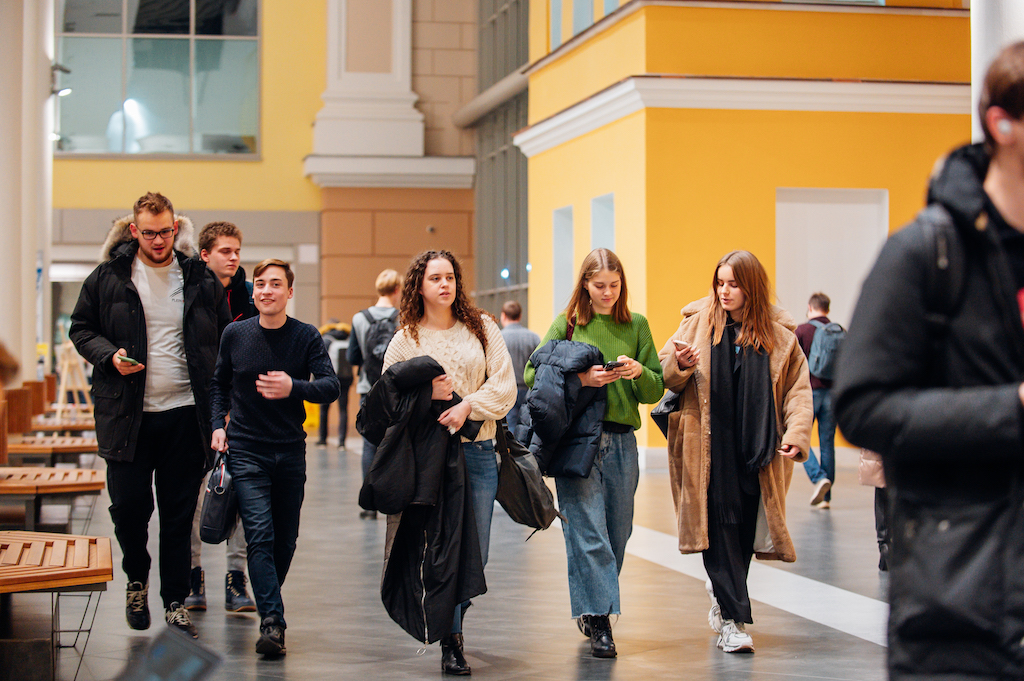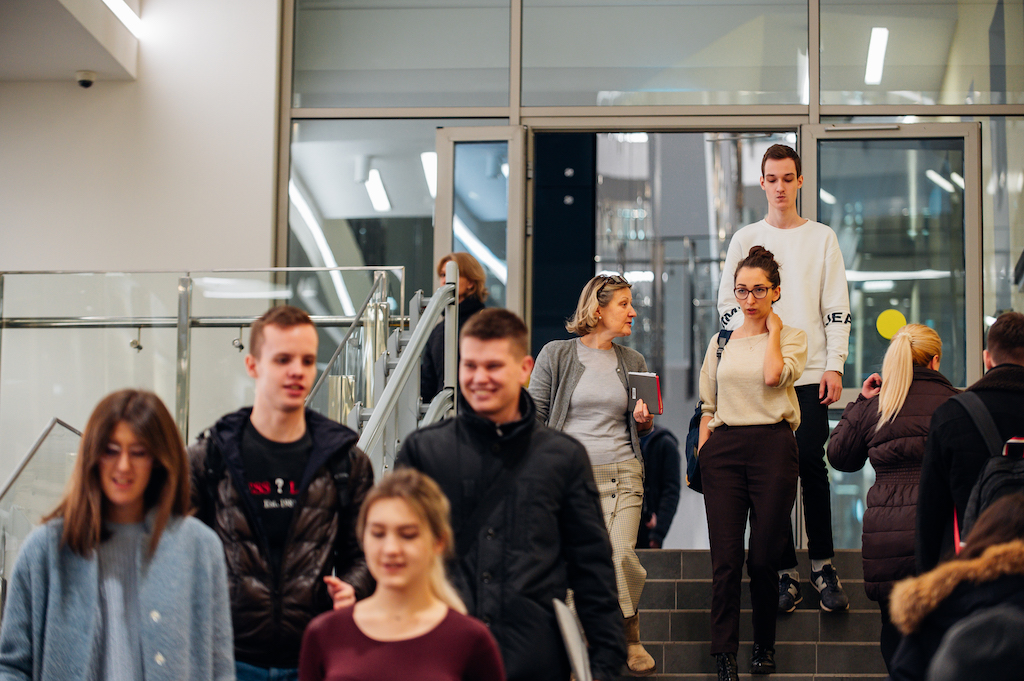Project Work at the Faculty of Humanities to Comprise a Three-Tier Structure

Project work in the Faculty of Humanities can be divided into three categories of varying scale. Megaprojects bring together employees of different HSE faculties and campuses; projects bring together employees at the faculty level; and more localized projects, which have been tentatively defined as initiative projects, are implemented by teams on an initiative basis. This project work structure and other issues were discussed on Wednesday, July 29 at a meeting of the HSE University administration.
This year, three faculties are being restructured as part of the HSE Administration’s initiative to create a ‘project-based university’—a university where hands-on project work and research form the core of its curriculum, research, and professional activities. The faculties that are being restructured this year with this aim are the Faculty of Humanities, the Faculty of Law, and the Faculty of Business and Management. The Faculty of Humanities will be the first faculty to implement a fully project-based curriculum.
‘We have a gigantic task before us: to move to project-based curricula for every student within 10 years,’ said HSE Rector Yaroslav Kuzminov during the administration meeting. Kuzminov noted that the Faculty of Social Sciences is ‘the first and closest partner of the Faculty of Humanities in its transition to a project-based structuring’, while the Faculty of Communications, Media, and Design is the second. The Faculty of Humanities has been identified as the faculty most in need of restructuring due to the insular nature of much of the research being carried out there.
Now the task is to create a more collaborative space that will encourage teams of employees to engage in research not just within their areas specialization but in interdisciplinary fields as well. This space will prevent faculty members from falling into research ruts and foster interdepartmental collaboration. This move to a project-based approach in research and academics is driven also by the current societal demand for new research in the humanities.
According to Faculty of Humanities Dean Mikhail Boytsov, a three-level structure for project-based work has taken shape at the Faculty. Projects of the first level, or megaprojects, bring together employees of different faculties and campuses of HSE. These are large-scale projects that include research, educational work, and applied components. They will receive targeted funding from the University. Projects of the second, faculty level, which are implemented amongst employees of the Faculty of Humanities, will receive funding from the Faculty. Projects (or sub-projects) at the third, more localized level can also count on appropriate funding. The funding periods for mega- and faculty-level projects will be three years. Projects of the third level, which are tentatively called ‘initiative projects’ due to the fact that they are launched on a proposal or initiative basis, will receive funding for one year.

The Faculty’s current crop of projects was selected among a large number of proposals submitted by its research and teaching staff. According to Dean Boytsov, the proposal review process was an important step in the Faculty’s transition to project-based work. ‘It really allowed us to see the initiative potential of our employees,’ he said.
Megaprojects are currently being launched on topics such as ‘Social Anthropology of Institutions of the Late USSR’; ‘Economic History’; ‘Russian and World Literature and Its Representation in the Mass Consciousness’; ‘The History of the Formation of Capitalism in Russia: The Regional Aspect’; ‘Applied Aspects of Ethics Research’; ‘Language and Speech Practices: Languages of Professional and Social Groups’; ‘The Integration of English and Russian Languages in Professional and Everyday Practices’; and ‘Niches of National Languages in Russia and Other Countries’.
At the faculty level, there are currently 16 projects, which include ‘Project-Based Cultural Studies’, ‘Digital Humanities Research’, and ‘Russian Philosophical, Cultural, and Religious Studies’. At the initiative level, there are currently 28 projects that have been proposed.
The three-tier structure is not rigid – projects of different levels may intersect. In describing some of the projects, Mikhail Boytsov noted in particular that ‘it is planned to actively involve experts in research on the topic of social anthropology of the late USSR.’ He also noted that the Faculty received as many as six proposals for projects dealing with languages of professional and social groups, which was a surprise.
By the decision of the administration on Wednesday, the proposed three-tier structure was approved. For September’s agenda, only the discussion of student projects remains, since they deserve special attention and study.
Because project work is a combination of research, teaching, expertise and outreach, both faculty and students should be involved.

Yaroslav Kuzminov, Rector, HSE University
We are one of the largest universities in the country, and we attract the best students. Our applicants this year included 400 winners of Russia’s Olympiad competition, and last year’s applicant pool included 276. And when these students join our university, they find themselves in an educational machine, and we become their educational office managers, which is very bad. We need to develop a system in which each student receives feedback and each student understands what a project is and what an open-ended undertaking is.
The Rector clarified that this will require very serious changes in the educational process, and this task will have to be solved with the resources that we have now.
Irina Glushchenko, Associate Professor of the School of Cultural Studies, asked the Rector about the issue of staffing. She noted that the current atmosphere of the Faculty of Humanities is characterized by a strong feeling of uncertainty. ‘This negative atmosphere is spreading throughout the Faculty like a wave,’ she reported. ‘If you look at the project plans, you see that all employees will remain where they are,’ she said, ‘but people need assurance and certainty.’
‘We also see that the sentiment amongst employees is without basis,’ Yaroslav Kuzminov replied. ‘And the materials presented here today should assure your colleagues that no one is going to be leaving. Why such an atmosphere developed is anyone’s guess. Charges that we are persecuting employees for their political views should not be taken seriously. As a person who works at HSE, I don’t know how someone can say that; it is an unfair charge of the university.’

The administration also approved plans to restructure the Faculty of Law, which were discussed by the Faculty’s Dean, Vadim Vinogradov. The plan stipulates the creation of a Department of Public Law, which will focus not only on state development but interdisciplinary subjects as well; a Department of Private Law, which will focus on digital tool and the creation of artificial intelligence; a Department of Legal Business Regulation, which will focus on corporate law and management; a Department of International Law, which will cover, among other things, anti-sanction strategies; as well as other departments and institutions.
The Faculty of Law is undergoing a very serious restructuring, which, as the Rector noted, is also aimed at ensuring that collaborative work reaches its full potential there.
‘We have suffered for many years because we did not have legal support in the form of economic tools for sanctions,’ said Sergey Karaganov, Dean of the Faculty of World Economy and World Politics. Now, however, this situation should change. Karaganov offered the expert support of members of his faculty who specialize in international affairs and political science.
Another item on the agenda was the admissions campaign. Vice Rector Vyacheslav Bashev said that the application deadline for new students has been extended to August 18, with the exception of programmes that have additional creative requirements.
Preliminary results from the Moscow campus admissions campaign show that the admission to the university is growing, and in some programmes it will be much higher than last year. Vyacheslav Bashev noted that the situation is similar in St. Petersburg.
Mikhail Boytsov
Irina Gluschenko

